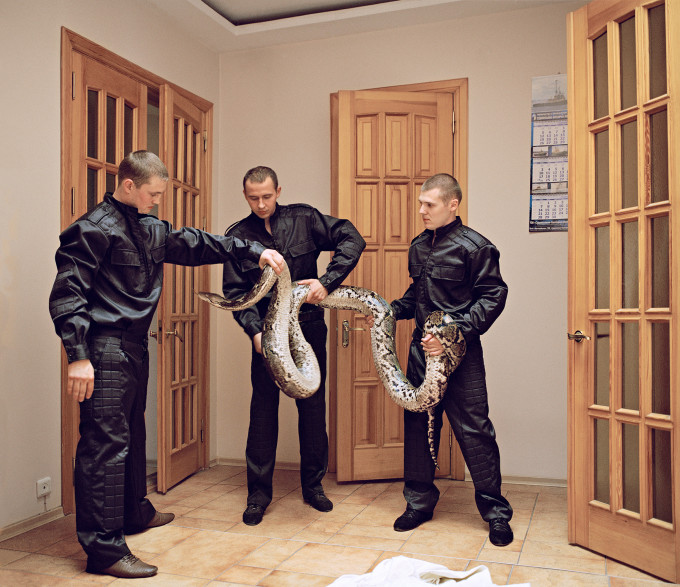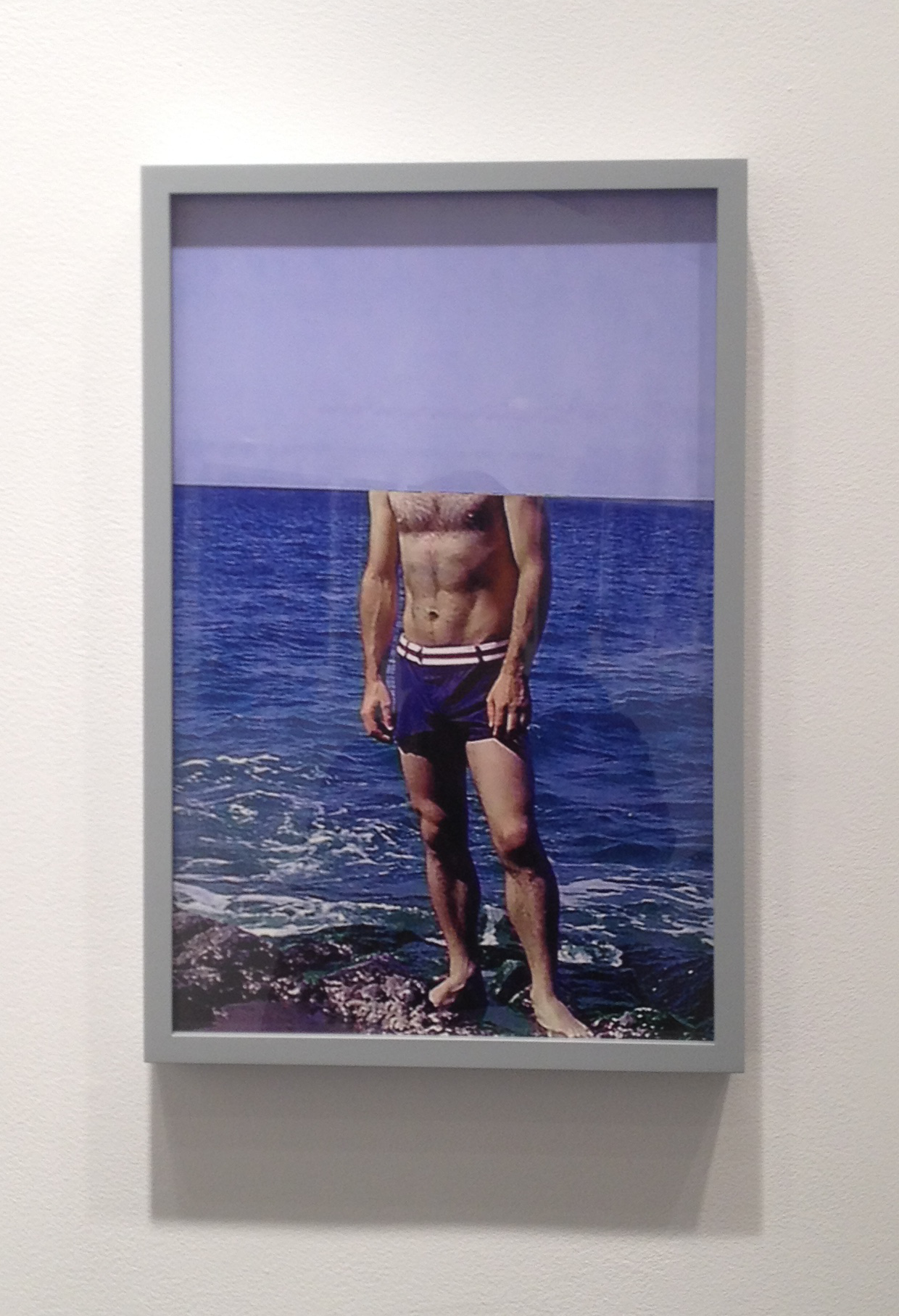
Philadelphia Photo Arts Center examines Russian identity and fate through photos and poetry
Above: Anzhelina Polonskaya with Nicholaes Muellner, installation view of “Two Birds.”
Russia is a behemoth in our world, both politically and geographically. Oftentimes it is easy for Americans unfamiliar with the Eurasian giant to misunderstand or make assumptions about the culture and lifestyle of the many groups that comprise its population. One need not look much further than the lengthy Cold War or the current rocky relationship between the East and the West to see that there is often a great divide between the planet’s great societies.
In order to capture the spirit of contemporary Russia, and the ways that everyday people–especially marginalized groups–get by in an often rigid and conservative culture, Philadelphia Photo Arts Center, a Knight Arts grantee, is highlighting the work of poet Anzhelina Polonskaya, artists Sasha Rudensky and Clemens Von Wedemeyer, and artist-curator Nicholas Muellner in an exhibit called “Fate Shifts Shapes.”

Sasha Rudensky, “Snake Handlers.” Courtesy of Philadelphia Photo Arts Center.
Based on the notion of the Russian compulsion to alter identity in the face of ‘inexorable social forces,’ the many photographs in the exhibit dissect elements of everyday life. The result is a collection of images that range from banal to bizarre. Take, for example, the first image visitors see upon entering: “Snake Handlers” by Sasha Rudensky. Three short-haired men in full-length black jumpsuits that resemble motorcycle jackets each help hold up a massive python. Without context, the scene could be a group of herpetologists at a zoo, or some type of performing group. Considering the matching outfits, it is unlikely that the trio are merely reptile enthusiasts or friends. There is an innate power projected by the subjects here, from their militaristic outfits to the way the deadly creature in their hands seems tame and controlled with no effort on the part of its handlers. Masculinity and mastery over nature are unbridled here, and the cultivation of these ideals seems at odds with the men’s youthful, somewhat quizzical faces. The poems and installation by Anzhelina Polonskaya and Nicholas Muellner skew much different from the above scene, as they reveal a more delicate, albeit dualistic, sensitivity. Polonskaya’s poem is attached to the wall with vinyl letters displayed backwards. Reading the piece is next to impossible without the aid of the various mirrors on the walls and floor of the space. “Two Birds” speaks of Umbra and Lumen–the shadow and the light–as well as death, mourning and the possibility of living all possibilities at once. Surrounded by numerous fashionable shots of the artist on the beach, on a motorcycle, on a boat and otherwise mugging for the camera, one cannot help but think that she truly does desire to be everywhere and everything at the same time.

Nicholas Muellner, “(Half Man).” Similarly to Polonskaya’s pieces, Muellner’s photos sometimes capture idealized scenes. Sometimes the shots are of scenic places, plants or sculptural forms, but other times they depict men on beaches in swim trunks. A pair of photos, “(Vanishing Point)” and “(Half Man),” show the headless bodies of a pair of muscular men without heads, one decapitated by the horizon line. It’s as if, despite their bodily strength, they are still rendered weak or incomplete. By recognizing the pitfalls of the social perfection they are immersed in, these individuals get a more complete view of their incompleteness. No one is an ideal, even when we outwardly cultivate our persona as such. Stop by Philadelphia Photo Arts Center before Feb. 27 to catch a glimpse of the way that “Fate Shifts Shapes” in Russia, Ukraine and occupied Crimea. You may be surprised by some of the similarities between identity cultivation in Eastern Europe and in the United States, despite how foreign they may seem at first.
Recent Content
-
Artsarticle ·
-
Artsarticle ·
-
Artsarticle ·
